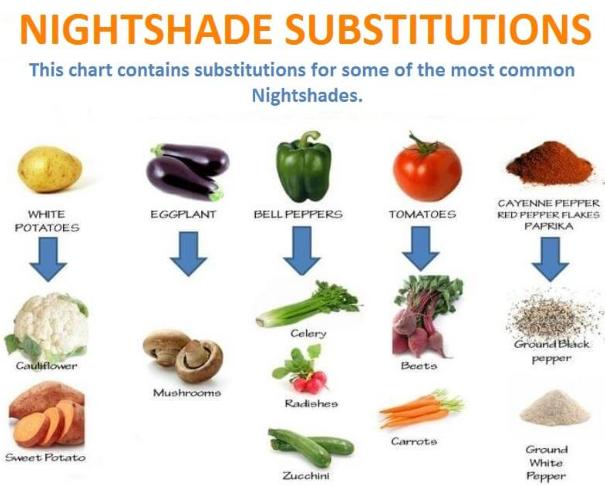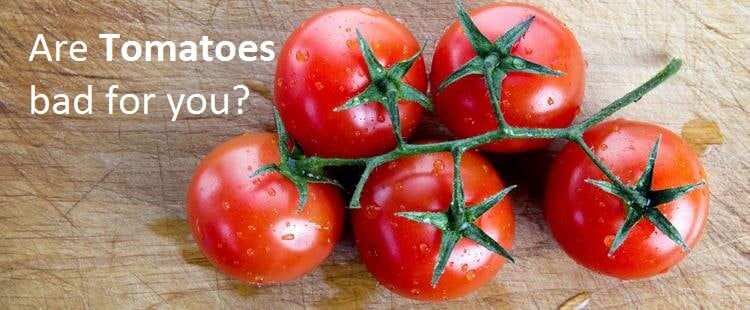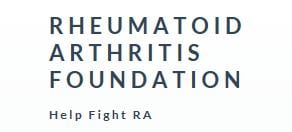Tomatoes, potatoes, eggplant, and peppers all belong to the same botanical family, commonly known as nightshades. But what do we really know about how these foods affect our health?
Nightshades of all types were considered inedible prior to the 1800’s, because some varieties, such as belladonna or “deadly nightshade” (atropa belladonna) were known to be toxic and used as a poison in ancient times. However, today most people eat “edible” nightshades every day in the form of French fries, mashed potatoes, salsa, spaghetti sauce, ketchup, and many other popular foods.
Nightshade vegetables contain enough toxins to cause inflammation in some people, particularly those with autoimmune disease. Often, we don’t realize just how much, until we stop eating them.

Meet the Nightshade Family
- Tomatoes
- Tomatillos
- Potatoes
- Eggplants
- Peppers (bell peppers, banana peppers, chili peppers, etc.)
- Red pepper seasonings (paprika, chili powder, cayenne, curry, etc.)
- Pimentos
- Pepinos
- Tamarillos
- Goji berries
- Ground cherries (similar to tomatoes, they have no relationship to fruit cherries)
- Ashwagandha (an ayurvedic herb)
- Tobacco
- Read labels: terms like “spices” and “natural flavors” often contain the above seasonings, and “starch” often comes from potatoes.
Similar foods that are not Nightshades
- Sweet Potatoes
- Peppercorns (black, white and pink)
If you ever wonder if a food is a nightshade, simply look up its scientific family. Only members of the Solanaceae family are nightshades.
How Are They Harmful?
First of all, nightshades aren’t harmful to everyone, but they are often harmful to people with autoimmune disease.
All nightshades contain toxic compounds called Glycoalkaloids, natural pesticides produced by nightshade plants. In nature, these protect the plants against insects, by poisoning the insect and dissolving its cell membranes.
Unfortunately, Glycoalkaloids can have a similar effect in humans, increasing our inflammation, overactivating our immune system, and causing permeability in our intestinal membranes (known as leaky gut), all of which contribute to autoimmune disease. If someone is healthy, with low inflammation in their body, a balanced immune system, and a healthy and strong digestive tract, they can often eat nightshade vegetables without a problem. However, people with autoimmune disease are vulnerable, and nightshades often exacerbate symptoms.
Are you Nightshade sensitive?
As with any food sensitivity, the only way to find out is to remove nightshades from your diet for a couple of weeks to see if you feel better. Then, reintroduce them into your diet as a test and then stop eating them, and monitor your symptoms. Did you have a negative reaction when you ate them again? If yes, you’re nightshade-sensitive. If no, you’re not.
Everyone is different, so as always, you’ll need to discover for yourself whether these foods may pose problems for your individual chemistry.
However, given what we know about nightshade chemicals, common sense tells us that these foods are well worth exploring as potential culprits.
Share this post:


5 Comments